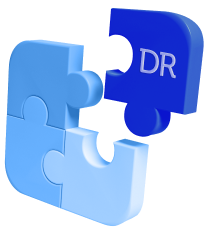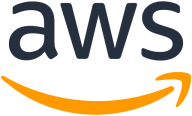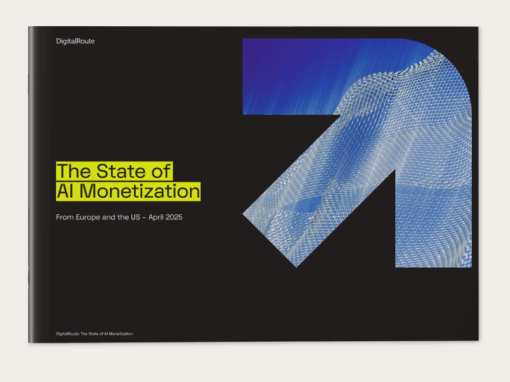Introduction
Businesses are increasingly relying on data to make informed decisions and drive growth. One key aspect of data management is metering, which plays a vital role in understanding how resources are utilized. By capturing and analyzing usage data, businesses can gain valuable insights into customer behavior, optimize service delivery, and ensure accurate billing processes.
Let’s explore the various facets of metering and delve into its benefits.
What Is Metering?
Metering is a process that involves capturing, aggregating, and analyzing data related to the usage of resources or services. It provides businesses with real-time insights into how customers, users, or devices interact with their services. Through metering, businesses can monitor resource consumption, track user behavior, and gain a comprehensive understanding of service usage patterns. This enables them to tailor their offerings, improve service performance, and optimize revenue generation. Metering is a powerful tool that helps businesses bridge the gap between service delivery and accurate billing.
As businesses continue to evolve and customer expectations rise, the importance of metering cannot be overstated. From accurate billing to intelligent pricing models, metering enables organizations to harness the power of data to drive growth. By capturing and analyzing usage data, businesses gain valuable insights, gain confidence in their decision-making, and deliver services that align with customer demands. Embracing metering is not just a matter of maximizing revenue; it is a strategic imperative for businesses looking to stay competitive.

The Role of Metering in Billing
When it comes to billing customers for services, accuracy is paramount. Traditional billing models often struggle to accurately capture the resource consumption of individual customers or users. This is where metering comes into play.
One of the key advantages of metering is that it enables businesses to move away from estimates or fixed pricing models. Instead, customers are billed based on their actual consumption. This not only ensures fairness in billing but also provides an incentive for customers to optimize their resource usage.
Implementing metering requires the use of purpose-built solutions. Metering systems are typically integrated into the infrastructure used by businesses to provide services. These systems collect data on resource usage, analyze it in real-time, and generate accurate billing information.
Metering can be particularly beneficial in industries where resource consumption varies significantly among customers or users. For example, in cloud computing, different customers may have varying demands for computing power, storage, or data transfer. Metering allows cloud service providers to bill customers based on their actual usage, taking into account factors such as peak usage periods or fluctuations in demand.
Metering can also help businesses identify trends and patterns in resource consumption. By analyzing usage data over time, businesses can gain insights into customer behavior, identify potential cost-saving opportunities, and optimize resource allocation.
Another advantage of metering is its ability to provide transparency to customers. By receiving detailed usage reports, customers can better understand their resource consumption and make informed decisions about their usage. This transparency can also foster trust between businesses and their customers, as it demonstrates a commitment to fairness and accuracy in billing.
Services that Utilize Metering
Metering brings immense flexibility to service offerings. With granular usage data, businesses can create innovative pricing models that align with customer demands.
Software-as-a-Service (SaaS)
Instead of charging a fixed fee for software licenses, a company can adopt a pay-as-you-go model, where customers are billed based on their actual usage of the software. A few examples of metered metrics include active user count, feature adoption, session duration, data consumption, etc.
Cloud Computing
A cloud computing provider can dynamically allocate computing resources based on real-time usage data. Metering allows the tracking and billing for CPU utilization, memory, storage, network bandwidth, API calls, and IoT device data ingestion, just to name a few.
Physical Pay-as-you-go Services
Remember when businesses used metering on physical day-to-day hardware such as arcade games, payphones, and mechanical parking meters? Today, IoT technology is frequently utilized in various physical products and environments, such as home appliances, scooters, bicycles, rental cars, storage units, and coworking spaces, to facilitate metering and data collection processes.
Utilities
Probably one of the most classic use cases of metering. This includes electricity, water, natural gas, heating and cooling, but there are also a few more modern utility services such as electric vehicle (EV) charging, peer-to-peer (P2P) energy trading, smart energy grids, real-time environmental monitoring, etc. that are increasing in popularity.
Media & Entertainment
Not only does metering allow accurate billing for films, music, games, eBooks, audiobooks, virtual reality (VR) arcade games, etc. consumed, it also streamlines revenue splits among partners such as record labels and film studios.
Telecommunications and Internet/Broadband Services
Another classic use case of metering where telcos charge for usage of talk minutes, data, bandwidth, SMS/MMS, and roaming. More recently, especially with the rollout of 5G, communication service providers (CSPs) are also able to offer their services towards IoT connectivity, telehealth services, blockchain connectivity, industrial machine automation, etc.
Metering unlocks a wide range of possibilities for businesses and customers alike beyond the ones mentioned above. From flexible pricing models to personalized recommendations, optimized resource allocation, enhanced transparency, and fostering innovation and competition, metering is a powerful tool that enables businesses to deliver better services and meet consumer and industry demands in a dynamic and ever-evolving market.
Metering in Subscription Services
Subscription-based services and subscription pricing models have become increasingly popular. From streaming platforms to Software-as-a-Service (SaaS) solutions, users have been subscribing to various services on a monthly or annual basis.
With the rise of subscription services and the increasing consciousness of users regarding their own consumption patterns, the need for accurate metering has become paramount. Service providers must be able to track and bill customers based on the features they utilize and the extent of their usage. This level of transparency ensures fair pricing and helps businesses optimize their offerings based on user preferences.
When it comes to streaming platforms, metering allows providers to understand which shows or movies are most popular among their subscribers. By analyzing this data, they can make informed decisions about licensing agreements and content acquisition, ensuring that they offer the most in-demand content to their users.
In SaaS, metering enables service providers to monitor how customers are utilizing their software. This information can help them identify any underutilized features or areas where users may be struggling. This allows providers to make improvements to their software, enhancing the user experience and increasing customer satisfaction.
Metering also benefits customers by providing them with insights into their own usage patterns. By seeing how much they are utilizing a service, customers can make informed decisions about whether they need to increase or decrease their consumption, or whether they should use a certain feature or not. This empowers users to have more control over their spending and ensures that they are only paying for what they truly need.
Metering also allows businesses to offer tiered pricing plans based on usage levels, or hybrid pricing plans if they offer a wide range of services. This flexibility enables customers to choose a plan that aligns with their needs and budget. For example, a streaming platform may offer a basic plan with limited hours of streaming per month and a premium plan with unlimited streaming. This tiered pricing model caters to different customer segments, maximizing revenue potential for the service provider.
Current Trends in Metering
IoT Integration
With the proliferation of Internet of Things (IoT) devices, there is a growing trend in integrating metering with IoT platforms. This allows organizations to monitor and manage the consumption of resources connected to IoT devices in real-time.
Edge Computing for Real-time Metering
Edge computing is increasingly being used to enable real-time metering. By processing data closer to the source (at the edge of the network), organizations can achieve faster and more responsive metering capabilities.
Hybrid and Multi-Cloud Metering
As businesses adopt hybrid and multi-cloud strategies, there is a trend towards solutions that can provide comprehensive metering across diverse cloud environments. This is crucial for organizations utilizing resources from different cloud service providers.
Advanced Analytics for Usage Insights
Metering data is being leveraged more extensively with advanced analytics and machine learning to gain deeper insights into consumption patterns. This enables organizations to make data-driven decisions for resource optimization.
Granular Metering for Microservices
In the context of microservices architecture, there is a trend towards more granular metering. This allows organizations to monitor the consumption of resources at the level of individual microservices, facilitating more precise resource allocation.
Blockchain for Metering Integrity
Blockchain technology is being explored to enhance the integrity and security of metering data. This can provide a tamper-proof and transparent record of resource consumption, especially in scenarios where trust and accuracy are critical.
User-centric Metering in SaaS
In Software as a Service (SaaS) models, there is a trend towards more user-centric metering. This involves tracking and metering the usage of software at the individual user level, providing insights into user behavior and enabling personalized billing.
Data Privacy and Compliance
With increased emphasis on data privacy regulations, metering solutions are evolving to ensure compliance with data protection standards. This includes implementing measures to secure and protect the privacy of user data collected during metering.
Smart Metering in Utilities
In utilities such as electricity and water, smart metering is gaining prominence. This involves the use of advanced metering infrastructure (AMI) and IoT technologies to enable more efficient and automated monitoring of resource consumption.
Predictive Metering for Resource Planning
Organizations are increasingly using predictive analytics in metering to forecast future resource consumption. This enables proactive resource planning and optimization based on anticipated demand.
Conclusion
Metering is a vital tool in modern business, offering a multitude of benefits to both service providers and consumers. By capturing and analyzing usage data, businesses can enhance customer insights, optimize service delivery, and ensure accurate billing. This process facilitates fair and transparent pricing by billing customers based on their actual resource consumption, replacing estimations and fixed models.
Metering spans various industries, from SaaS and cloud computing to utilities, media, telecommunications, and pay-as-you-go services.
In today’s subscription economy, metering plays a critical role in tailoring content and features to user preferences, empowering customers to manage their spending effectively, contributing to a dynamic and competitive market. Embracing metering is no longer an option but a strategic necessity.








